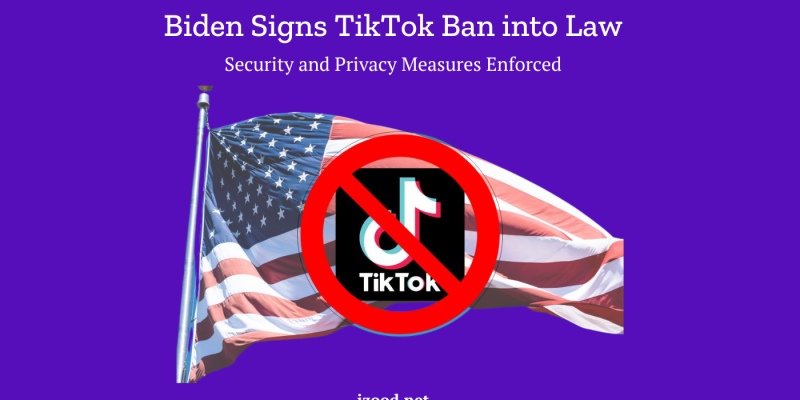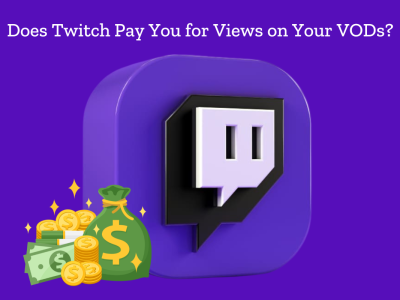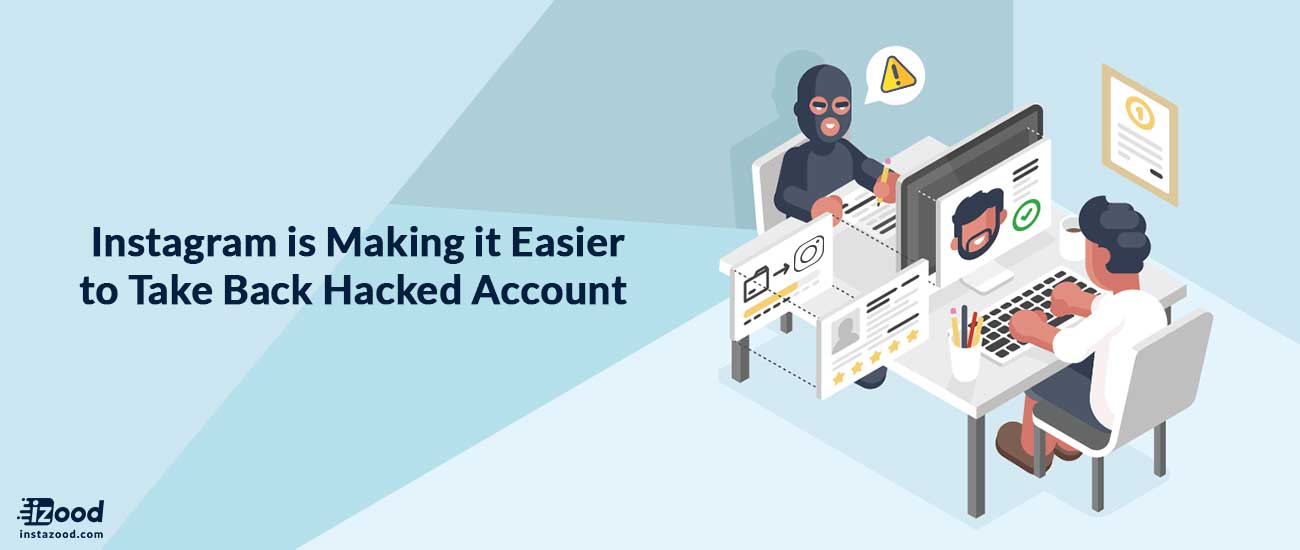
The controversy surrounding the popular social media app TikTok has reached a new peak. President Joe Biden has officially signed a bill into law, potentially banning the Chinese-owned app from operating within the United States. The bill, which has been the subject of heated debate in Congress, represents a significant shift in how the U.S. government views social media platforms, particularly those with foreign ownership.
What does the legislation that Biden signed do?
The legislation signed by President Biden concerning TikTok has several key provisions aimed at addressing concerns about the app’s operations and its potential impact on national security and data privacy. Here’s what the legislation does:
- Ban on TikTok: The primary effect of the law is to potentially ban TikTok from operating within the United States. This includes removing the app from app stores, preventing downloads and updates, and curtailing its operations within the country.
- Address National Security Concerns: The legislation aims to mitigate national security risks associated with TikTok’s ownership by the Chinese company ByteDance. It addresses concerns that ByteDance could be compelled by the Chinese government to share user data or other sensitive information, which lawmakers view as a security threat.
- Data Privacy and Protection: The law also reflects broader concerns about how TikTok handles user data. It aims to prevent potential misuse or unauthorized access to the vast repository of user information, including location data and behavioral patterns.
- Implementation Measures: The law’s provisions outline how the ban will be implemented, including potential timelines for its enforcement. This might include immediate actions or a phased approach, depending on the specifics of the legislation and its execution.
- Legal Recourse: The legislation recognizes the potential for legal challenges, particularly from ByteDance and TikTok. The company’s response and subsequent legal actions might delay or alter the law’s enforcement.
The legislation represents a significant step in the U.S. government’s approach to regulating foreign-owned tech companies, particularly those operating in the digital space. The specifics of its implementation and any subsequent legal actions will further shape its impact on TikTok’s operations and its users.
What are the reasons that TikTok might be banned by Biden?
The potential ban on TikTok signed into law by President Biden can be attributed to several key reasons:
- National Security: A primary concern driving legislative action is TikTok’s potential to share data with the Chinese government. Lawmakers worry that ByteDance, TikTok’s parent company, might be compelled by Chinese authorities to provide access to user data, which could pose a security threat to the United States.
- Data Privacy: The legislation reflects concerns about how TikTok handles user data. Critics argue that TikTok’s vast repository of information, including location data, behavioral patterns, and personal identifiers, could be vulnerable to misuse or unauthorized access.
- Foreign Influence: The U.S. government has taken a cautious stance toward foreign-owned tech companies operating in the country. TikTok’s ownership by a Chinese company raises concerns about potential influence or interference from the Chinese government, especially considering the app’s vast user base in the United States.
- Legislative Pressure: The bill’s passage and Biden’s signing reflect bipartisan support in Congress to address digital security and data protection. The legislative process signifies a growing trend in the U.S. government’s approach to regulating tech companies, particularly those with foreign ownership.
- TikTok’s Response: The company’s measures to address these concerns, including shifting data storage to servers in the United States and Singapore and implementing transparency measures, may not have been enough to assuage lawmakers’ fears, leading to the current legislative action.
These factors together contributed to Biden’s decision to sign the bill into law, marking a significant shift in how the U.S. government views TikTok and similar platforms.
What Does the Ban Mean for TikTok?
The immediate effect of the law is unclear, as ByteDance and TikTok have indicated they will explore legal options to challenge it. The app could face restrictions on downloads and updates in the U.S., or even be removed from app stores entirely. Additionally, TikTok’s operations in the U.S. may be curtailed, affecting its substantial user base and content creators who rely on the platform.
Impact on Users and Creators
With TikTok boasting millions of users in the United States, the ban’s implications could be far-reaching. For everyday users, the ban might lead to the loss of a favorite platform for entertainment and connection. For content creators, particularly those who rely on TikTok for income, the ban could disrupt livelihoods, forcing them to explore alternative platforms or business models.
ByteDance’s Response
ByteDance has expressed disappointment over the ban, stating its commitment to protecting user data and complying with relevant laws. The company has emphasized its efforts to distance TikTok from its Chinese origins, including shifting data storage to servers in the United States and Singapore, and strengthening transparency measures. ByteDance’s next steps are likely to include legal challenges, potentially prolonging the uncertainty around TikTok’s status.
Global Implications
The ban on TikTok has broader implications, not just for the U.S. but globally. Other countries are closely watching the U.S.’s stance, and this move may influence their own regulatory approaches. Additionally, this development underscores the growing importance of national security in the digital age, prompting further discussions on how to handle foreign-owned tech companies.
How soon could a potential ban take effect?
A potential TikTok ban could take effect in different ways, depending on how the new law is implemented. Here are some potential scenarios:
- Immediate Effect: If the law does not include a grace period or requires immediate implementation, app stores and platforms could begin removing TikTok downloads and updates right away. This scenario would directly impact new users and potentially disrupt existing users who rely on regular updates.
- Gradual Implementation: The law might include a phased or delayed approach, allowing TikTok and its users time to adjust. In this case, users might have time to explore alternatives, and TikTok might pursue legal action or compliance measures to maintain its operations.
- Legal Challenges: ByteDance and TikTok have expressed intentions to explore legal options. Any court proceedings could delay the ban’s implementation or lead to temporary stays, creating further uncertainty around the app’s status.
In practice, the ban’s timeline and scope will depend on how these factors play out, including potential legal disputes and how quickly the U.S. government seeks to enforce the law.
Conclusion
The signing of the TikTok ban into law marks a pivotal moment in the intersection of technology, national security, and global politics. The implications for users, creators, and the broader tech landscape remain to be seen, as ByteDance considers its legal options and the U.S. government navigates the next steps. The unfolding situation will likely spark further discussions about digital regulation, foreign-owned tech companies, and data security in the modern age.







